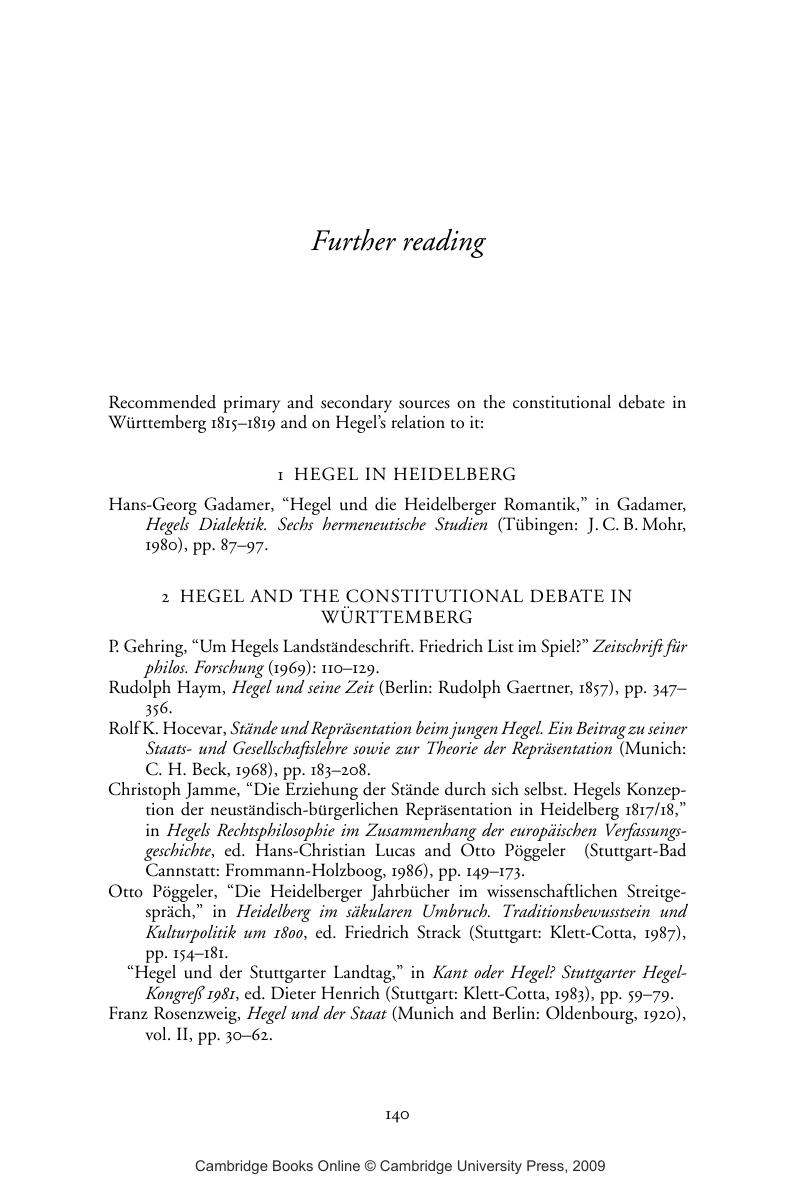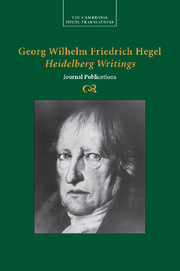Further reading
Published online by Cambridge University Press: 10 December 2009
Summary

- Type
- Chapter
- Information
- Georg Wilhelm Friedrich Hegel: Heidelberg WritingsJournal Publications, pp. 140 - 142Publisher: Cambridge University PressPrint publication year: 2009

